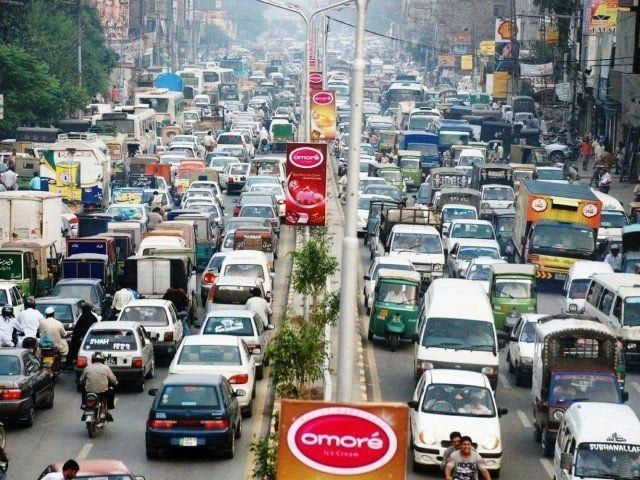Capital chaos: ‘Rural migration fuelling rapid urbanisation’
Speaker says cities are always the hub of revolutionary activity

Speaker says cities are always the hub of revolutionary activity. PHOTO: NNI
The urbanisation trend globally is being fuelled by migration from rural areas, said speakers at a discussion session held on the first day of Lahore Literary Festival.
The debate titled: Creativity, Capital and Chaos: Future of the Metropolis was moderated by Claire Armitstead. The speakers included Zukiswa Wanner, Kamila Shamsie and Ahdaf Soueif.
Shamsie said that migration from villages played a major role in the emergence of big cities. “Migration is a nightmare. Migrating people face questions of affordability; affording to live, to buy, to educate, to get healthcare,” she said.
Ahdaf Soueif said when living in a big city like Cairo, she had experienced a certain fear. “There is the fear of being displaced and snatched away,” she said.
She said that big cities were a hub of revolutionary activity. “This happens because there is always a big question mark about who owns the city - whether it is the state or the people,” she said.
Shamsie said polarisation in Karachi was likely to grow. “The communities [in Karachi] are dependent on one another. However, the increasing polarisation is politically motivated. Migration into Karachi is not a problem. The problem is what you do to this migration. They need to realise that the people coming to Karachi are going to contribute towards the growth of the city,” she said.
Soueif said that the situation was different in Egypt. “Egyptians had been hostile to migration until Hoseni Mobarak introduced new policies. The people came and built houses and installations. This was welcomed because all the stake-holders benefitted,” she said.
She said that cities had grown as poor agriculture policies decimated rural populations. “Cities grow organically where the rich and the poor live side by side. The process has to be organised,” she said.
Shamsie said that living in a historical city was an interesting experience. “Development has eroded history in the name of progress. Take the example of Orange Line Metro train project,” she said.
Soueif said a visitor to Cairo found historical monuments of several eras. “These remind one of an evolution and mixture of arts. This is being eroded in the metropolitans,” she said.
Zukiwa said that many big cities were quite young. “In Johannesburg, when two people meet for the first time they ask each other about their village,” she said.
She said that big cities were more secure and had more freedom today compared to a decade ago. “However, governments make different claims. The infrastructure built by the governments in the name of security and freedom is for surveillance not for support,” she said.
Soueif said security measures were not for the protection of citizens’ freedom, but to make regimes secure. “These infrastructures are meant to benefit regimes and their friends. Such development is theft and robbery. They steal your material history,” she said.
She said that every city had a different structure and context. “You cannot stop a farmer from migrating to a city once you have ruined him,” she said.
Shamsie said that distribution of benefits of development could help regulate urbanisation.
Published in The Express Tribune, February 21st, 2016.



















COMMENTS
Comments are moderated and generally will be posted if they are on-topic and not abusive.
For more information, please see our Comments FAQ